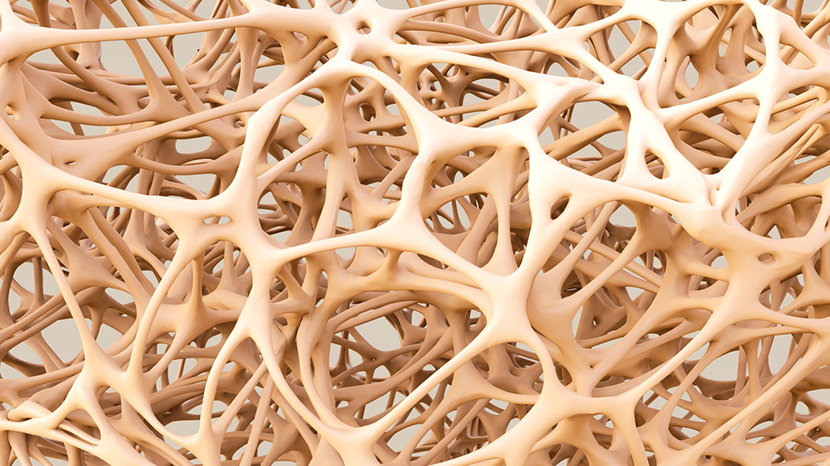
Osteoporosis Risks and Diagnosis
Getting older shouldn’t have to be painful, but for many that is a reality because of diseases like osteoporosis. I’d like to share some information about osteoporosis and ways you can prevent or lessen its progression. Osteoporosis is something we will all experience — it’s a loss of bone density that happens as we age. Nearly 60% of adults age 50 and older are at risk of breaking a bone due to osteoporosis. Typically, women are more at risk than men. Over the age of 50, one out of two women and one out of four men will experience a fracture from osteoporosis.
Family history also plays a role. If you have close family members with osteoporosis, you are more likely to develop it. Also, people with smaller, lighter bones are more prone to develop osteoporosis.
So how do you figure out if you have osteoporosis? In its initial stages, you won’t notice anything. It’s a good idea to talk with your doctor about your risk factors: he or she may recommend a bone densitometry test. This is an easy and painless exam. You will lie comfortably on an x-ray table and the technologist will take scans, typically of your hip or spine. Then ARA does a calculation based on a normative group to assess your bone density. If your bones have a lower density than what is normal for your age group, you will have a higher chance of osteoporotic fracture in the future. Fortunately, there are many effective treatments.
So what can you do to prevent or mitigate osteoporosis?
• Check your risk factors. Many play a role, including age, gender, lifestyle, medical history and taking certain medications. Discuss your status with your doctor and see if a bone densitometry test is recommended.
• Get active. Regular weight-bearing and muscle strengthening exercise is one of the best ways to protect against osteoporosis. It can increase bone density plus reduce the chance of a fall.
• Make sure you are getting enough calcium and vitamin D. Your doctor can help you look at your diet and may recommend supplements and diet changes.
• Don’t smoke and don’t drink too much alcohol. No more than two drinks a day is best for bone health.
• Get a bone densitometry exam. ARA has these exams available at many locations. Ask your doctor if bone densitometry is recommended for you.
A note to younger people: start a preventive plan early. We find that young people who lift weights, run and walk fare better as they age. Taking the minimum daily requirement of calcium and vitamin D can also help people of all ages.
With a recommendation from your doctor, you can request a bone densitometry appointment online at www.ausrad.com or call 512-453-6100 to speak to our schedulers.
 Back to Top
Back to Top